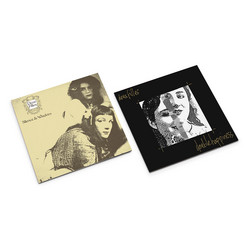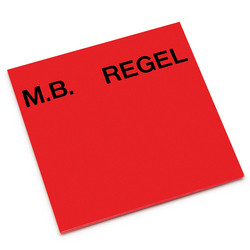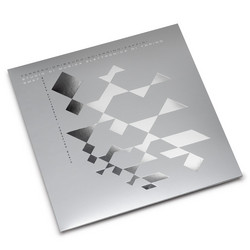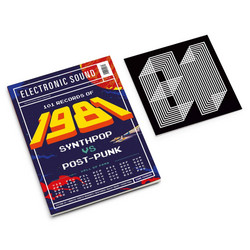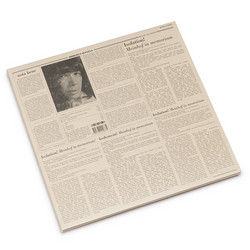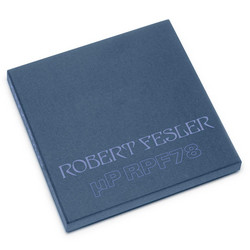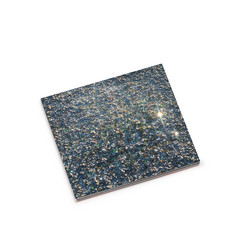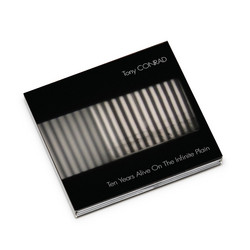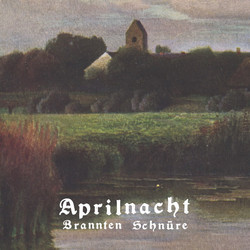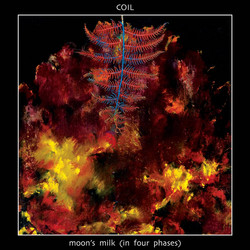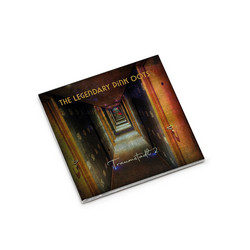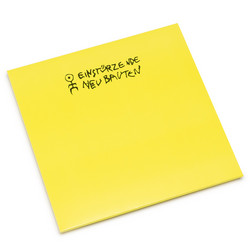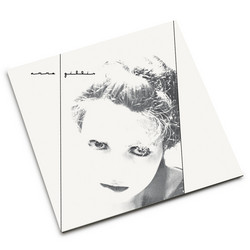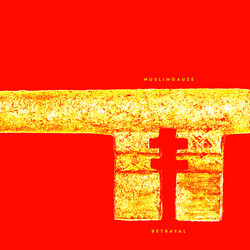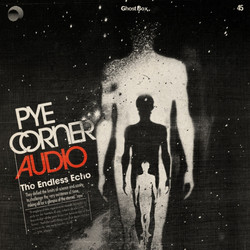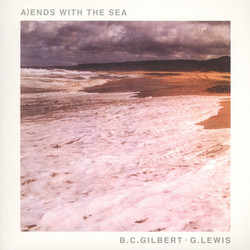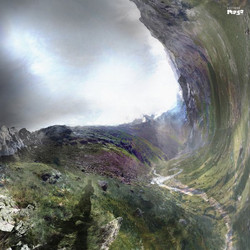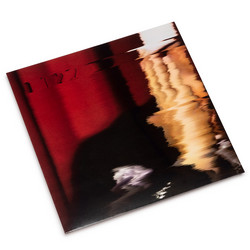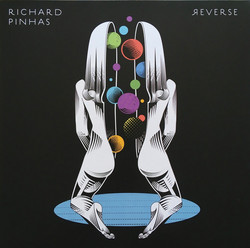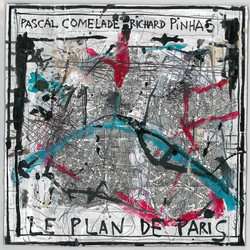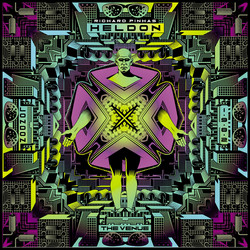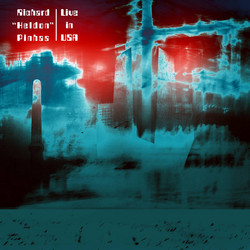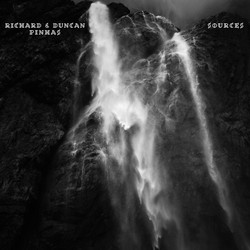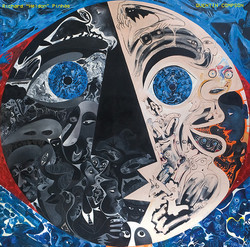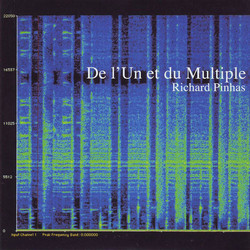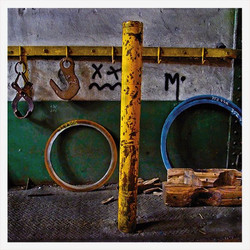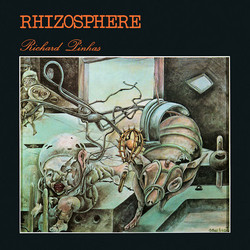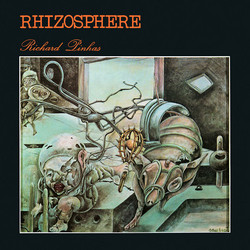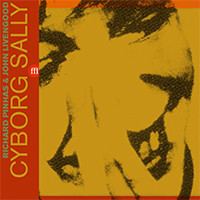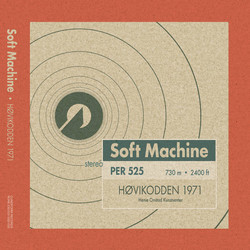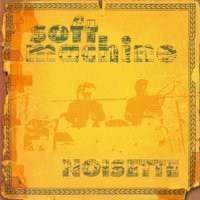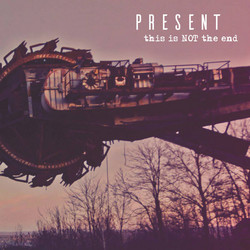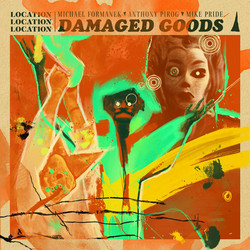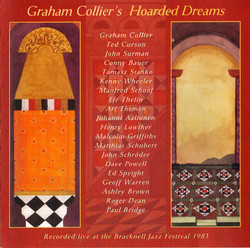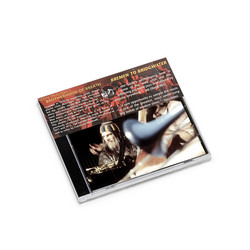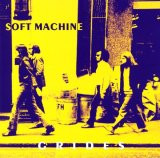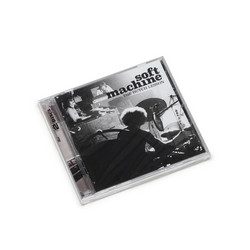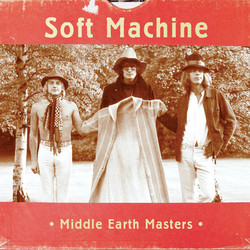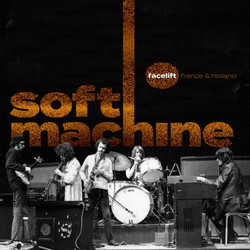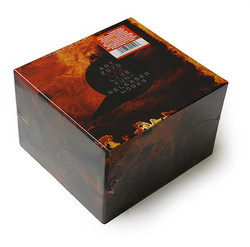Cuneiform Records is proud to announce the first-ever vinyl reissue of Chronolyse, the masterwork of 1970s analogue electronics that French electronic musician and guitarist Richard Pinhas created in tribute to Frank Herbert’s sci-fi classic, Dune. This special reissue, pressed on 180 gram white vinyl and featuring the original album artwork, celebrates Chronolyse’s conception nearly 40 years ago as well as the 50th anniversary of Dune, the first volume of which was published in 1965.
Chronolyse came out on vinyl in 1978, released by Cobra only in France. Although it was his first solo recording, it was his second solo album release, as Rhizosphere had come out the year before. As completed, it included one side of solo, live Moog synthesizer pieces, notable for their wide, stereo field and unique sound - a product of the weeks he spent setting up and programming the sounds on his huge Moog P3 modular synthesizer. The other side was a lengthy, stormy, drone-filled, epi of mellotrons (Polymoog), electronics, guitar, bass and drums by his Heldon colleagues. In Chronolyse, Pinhas not only explored new synthesizer technologies, new sonics and materials, but also the philosophical concepts that he held dearest, such as timeless repetition and the superimposition of events. In Chronolyse, Pinhas wove his separate worlds of music, philosophy, science fiction and literature, physical reality and family life into a single sonic and philosophical universe.
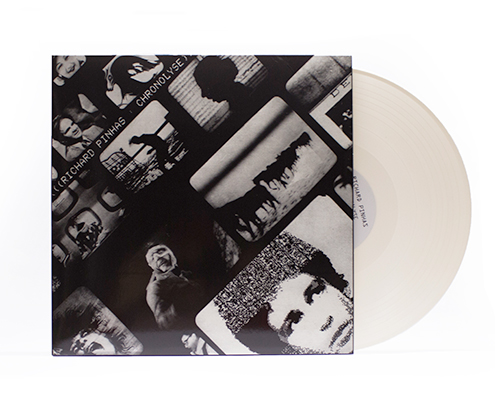
Steve Feigenbaum, Cuneiform’s founder and CEO, had long admired Pinhas’ work; he calls Chronolyse “absolutely one of Richard’s very finest works: half live Moog electronics that make fantastic use of stereo imaging and mix aggression with the repetitiveness of Phillip Glass or Terry Riley, and half with Heldon in a 30' King Crimson-ish stormy drone-epic of mellotrons, electronics, guitar, bass, & drums.” 25 years ago, after months of communicating across the Atlantic, he took the train from Washington DC, Pinhas flew from Paris, and the two met in person in New York City to discuss a collaboration. Cuneiform and Pinhas signed a contract for Cuneiform to reissue on CD and distribute internationally all of Pinhas early solo and Heldon recordings, originally released on LP in France. They decided to reissue the back catalogue in groups of two. The first Cuneiform CD reissues, Chronolyse and East/West, came out in 1991 with a Cuneiform press release written by NYC-based science fiction novelist Norman Spinrad. Now, Cuneiform is doing the first-ever vinyl reissue of Chronolyse, 35 years after it last appeared in that medium.
"Composer, electronics innovator and guitarist Richard Pinhas is one of France's major experimental musicians. He has long been recognized as a pivotal figure in the development of combining rock music with electronics. Years before MIDI existed, Richard was creating sophisticated electronic music using vast walls of the available components of the day. Both as a solo artist and with his band Heldon, he released a number of advanced and classic albums in the 70s that set the stage for much of what is thought of as 'contemporary music'. A ceaseless innovator, he continued to experiment and expand his music over the subsequent decades and into the present day, releasing dozens of solo and collaborative recordings that continue to expand the parameters of rock. In a 21st century creative surge, Pinhas has released numerous new recordings on Cuneiform in recent years, including collaborations with such artists as Merzbow, Tatsuya Yoshida and Oren Ambarchi. His work has been discovered by new generations of fans, some of whom have sampled his music (Four Tet).
Pinhas was inspired not only by other musicians and composers, but also by various types of literature, in particular science fiction. He had a special fondness for Philip Dick and Frank Herbert, and Chronolyse pays homage to Herbert's famous Dune with titles such as "Surle Theme de Bene Gesserit" and "Paul Atreides." In spite of the common literary thread, this is a very schizophrenic release, almost equally divided between short solo pieces, recorded live on moog synthesizer by Pinhas, and a long, dense space jam with Pinhas on guitars, mellotron and A.R.P. synthesizer, accompanied by Didier Batard on bass and Francois Auger on drums. Of the two styles, the group effort ("Paul Atreides") will probably be more rewarding for most listeners. Starting very slowly with a free-form display of desolate industrial drones and science-lab electronic effects, Pinhas eventually adds some searing, haunted feedback guitar in the style of Fripp, accompanied by the slow, rhythmic throb of Batard's bass. Seven or eight minutes into the piece, Auger's drums solidify the slow, grinding blues beat that prevails for the next 20 minutes, while Pinhas continues to wail and squeal on both guitars and synthesizers, bending and smearing notes and creating a thick, hypnotic blanket of sound. This piece is both forward- and backward-looking, as it makes use of new electronic resources but also hearkens back not only to prog-rockers such as King Crimson and Yes, but also to the psychedelic '60s, with a touch of Hendrix, Robin Trower and other guitar warriors. The solo pieces, on the other hand, are stark and unadorned keyboard studies for synthesizer. In interviews, Pinhas has identified Philip Glass as an early influence, and these pieces often suggest the minimalism of Glass or perhaps Terry Riley. From a later vantage point they are pleasant enough, but rather imitative, and with less of the magic created by Glass' propulsive energy or Riley's trance-like repetition. AllMusicGuide
